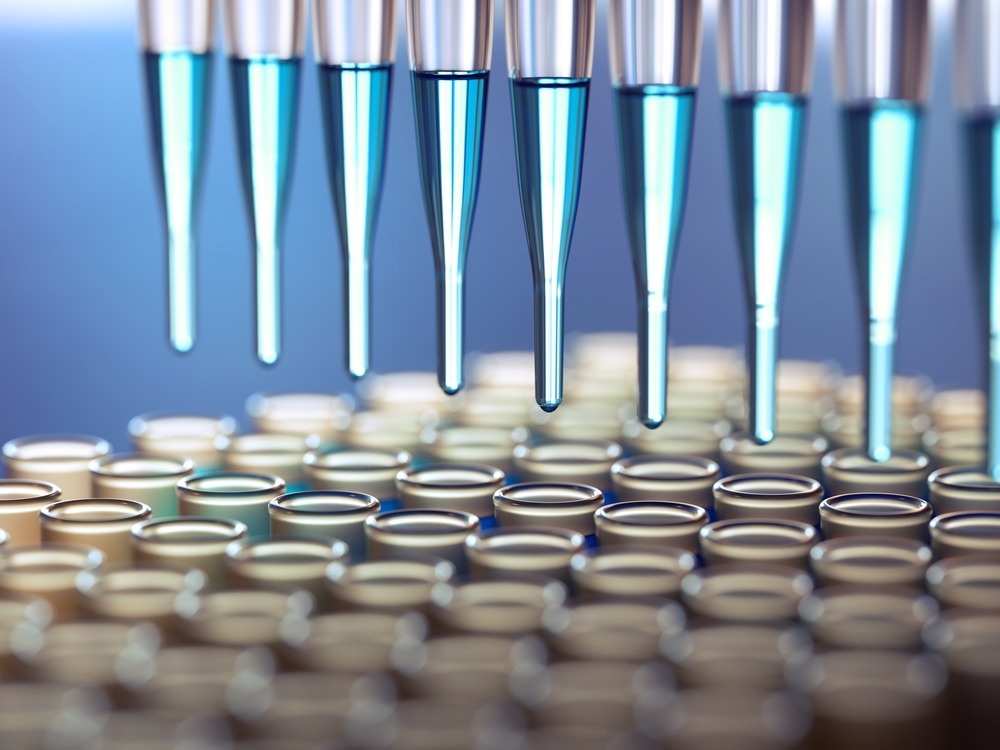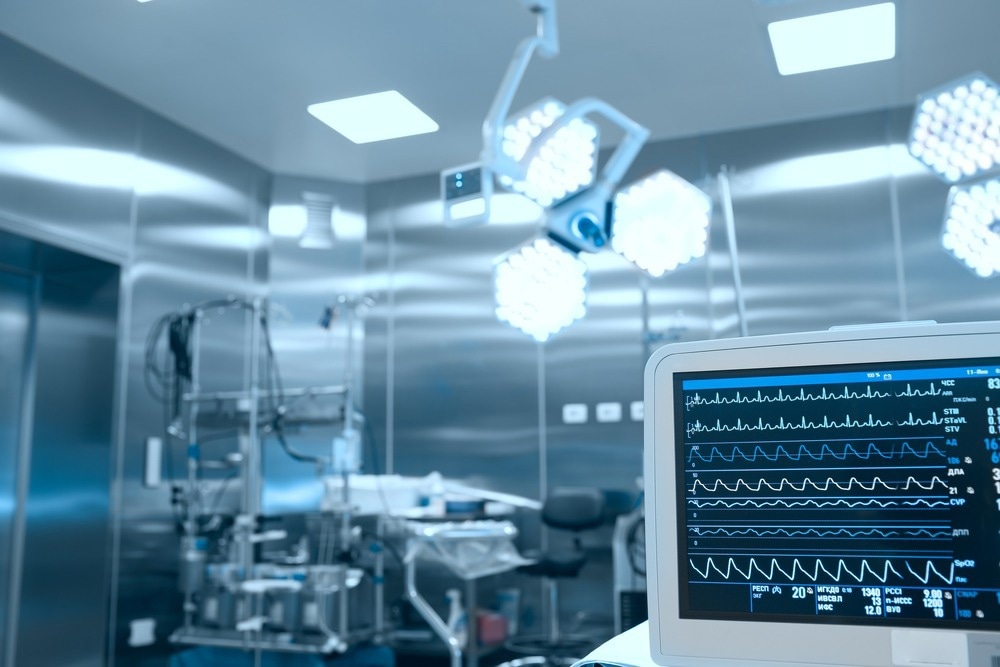In this interview, we speak to Holger Eickhoff, CEO and Founder of Scienion, about their latest technology, The Nucleus Automation Ecosystem, and how it will bring new flexibility to the manufacturing market in life sciences.
Please can you introduce yourself and tell us about your role at Scienion?
My name is Holger Eickhoff, and I am the Founder and CEO of Scienion. I have had the same job description for the last 22 years.
Scienion is a global leader in precision dispensing, using your products to accelerate the life sciences by providing accessible solutions combining both biology and technology. Can you tell us more about Scienion and your core aims and values?
Scienion is essentially two words merged into one; science and vision. This is how we came up with the company name.
Our customers are our main priority, as we dispense and assay development solutions to allow for precision medicine, a major personal health development.
Can you tell us what the term’ precision dispensing’ means and what sectors it benefits in the life sciences?
Precision dispensing refers to reproducibility, ensuring precision in the screening and medical testing fields. The more precise we can dispense reagents, the more precise the diagnosis. From this, we can sense, for example, if people have an autoimmune disorder or an allergy with high specificity.

Image Credit: maxuser/Shutterstock.com
Currently, you have a variety of services and products available for customers that encompasses automation, multiplex analysis, and miniaturization. Can you tell us more about some of your core products and how they are able to benefit all aspects of life sciences research from its initial phases all the way through to high throughput production?
We accompany our customers from the early stages of product development through to manufacturing. Essentially, if the product makes it to market, we provide technologies that facilitate the production of as many products as required. Throughout the pandemic, we carried out various tests, and the lateral flow test strips and PCR tests that are so familiar today are all based on our technology.
We can either sell our customer’s equipment to aid in the production of millions of tests or contract manufacturers that have the capacity to test in-house. We are almost a one-stop shop for life science solutions.
Moreover, we are attentive to our customer’s needs; we do not just sell the equipment. For instance, if our customer wants us to conduct tests for them, we can absolutely accommodate this and transfer the results to them later down the line. In other words, we provide solutions to our customer’s problems, regardless of what scientific challenge needs to be addressed. In a rapidly advancing market, we find this is the best strategy.
Scienion has recently launched its latest product, The Nucleus Automation Ecosystem, a fully integrated platform bringing new flexibility to the manufacturing market. Can you tell us more about this platform and how it works?
The Nucleus Automation Ecosystem is a fully integrated platform that offers advancements in modularity, scalability, and flexibility.
If we were to compare the Nucleus to an iPhone, the Nucleus Automation Ecosystem would be similar to an app. We can also offer a MacBook Pro if the user wants to upscale this.
The system has base modules where you can carry out a process, validate it, and then scale it to any scale. It fits our current philosophy very well. We are currently working with new industry-leading components and have received very good feedback on the concept thus far.
Scienion - SLAS 2023
Scienion - SLAS 2023 from AZoNetwork on Vimeo.
With various new automated equipment becoming available in the life sciences, what makes your product unique?
Being able to validate a complete process in one module and then scale to any scale based on the customer’s needs makes our offering so unique, and this goes beyond any of the dispensed solutions we currently provide.
It is a combination of dispensing substrate handling, gluing, welding, etc., as opposed to getting a complete diagnostic test kit or a pharmaceutical device manufactured and then having to scale it further down the line.
The Nucleus Platform also reduces the carbon footprint of processes due to them being housed in the same enclosure. Why was it important to design a product that was not only precise but environmentally friendly too?
Offering a ‘clean,’ environmentally friendly product is crucial as we want to be able to market this product worldwide. At present, it is hard to find a clean room that can produce accurate diagnostic tests in every part of the world.
Additionally, the process steps are housed within the same enclosure, reducing the system’s overall footprint. It is also fully autonomous with its own clean room, including humidification, air conditioning, etc. This allows for significant cost savings as the user does not require an external large clean room with additional utility beds. This is a great advantage for our customers.
The reduced footprint is also a massive advantage for researchers as worktop space is in high demand. Researchers are currently conducting groundbreaking research within a tiny space, and we hope this modular system will be a good solution to this, allowing R&D to be carried out all in one place. Then, if it needs to be scaled up, this can be done in a hall rather than in a clean room, which is much more environmentally friendly.
How will The Nucleus continue to support your current customers as well as provide new opportunities in fields such as medical devices?
Our existing customer base loves the new platform, as it means that we can keep adding processes that are not currently part of our offering, and we are doing this with industry-standard automation systems.
For the medical device industry, this offering is more of a finished product than just a segment of it, and this is very much appreciated within the field.

Image Credit: sfam_photo/Shutterstock.com
You are currently showcasing the first prototype of the platform at SLAS 2023, allowing people to see and watch live demonstrations. How important is this for your customers, and what value do international exhibitions like SLAS have when launching new products?
Being able to showcase the platform prototype at exhibitions such as SLAS means materializing a concept we have spoken about. This helps to build a sense of trust throughout the industry, as people can come over, see the product, feel it, and, most importantly, test it.
This is also a great opportunity for individuals to learn more about our new offering and ask any questions they may have, speaking first-hand to the experts who know the product inside and out.
Typically, strong client relationships take years to develop; there is no shortcut. Working with the right partner is critical; speaking to company representatives at exhibitions like SLAS is a key starting point in this journey.
Despite the difficulty of transporting it from Europe, we are very proud to be able to showcase our prototype at SLAS.
At Scienion, you are also strongly committed to R&D, taking part in both internal research efforts as well as participating in various national and international research projects. Why is this, and how important is collaboration to these projects?
Scienion is a very collaborative company, and it is so important that we are able to collaborate with our customers.
Within R&D, we sponsor and collaborate with world-leading research organizations. We consider ourselves a part of cutting-edge science. We do not want to provide only a tool but also the knowledge behind it. Collaboration is key to Scienion’s future success, as what we see in the lab today will potentially become available on the market in the next six to eight years.

Image Credit: Pressmaster/Shutterstock.com
Are you hopeful that with continued technological advancements, we will continue to see improved diagnostic and bioanalysis test platforms? What would this mean for patients, consumers, and public health worldwide?
When people go to the doctors, they face the ‘Stone Age’ technology that is still in use. This is what motivates us to carry out the work that we do at Scienion. For instance, imagine a technology that is able to provide single-cell resolution in oncology, with the potential to ensure a patient with a tumor leaves the hospital with zero oncologic cells.
We will keep working hard until these concepts materialize and this technology is implemented.
It would also be revolutionary to democratize results, making them more understandable for an everyday individual who lacks specialized medical knowledge. This will be a big collaborative effort between doctors and clinics, but this is something that we are in the middle of working on.
What is next for Scienion? Are you involved in any exciting upcoming projects?
The future is unclear in terms of upcoming projects. Ideally, we want to follow the trends.
One trend that we are seeing is that our developments and products intended for life science and diagnostics will become lifestyle products, such as sensors in watches and wristbands. We see business moving in this direction and entering the mainstream. We have entertained such applications over the last five to six years, and we see this becoming a mega-trend in the near future.